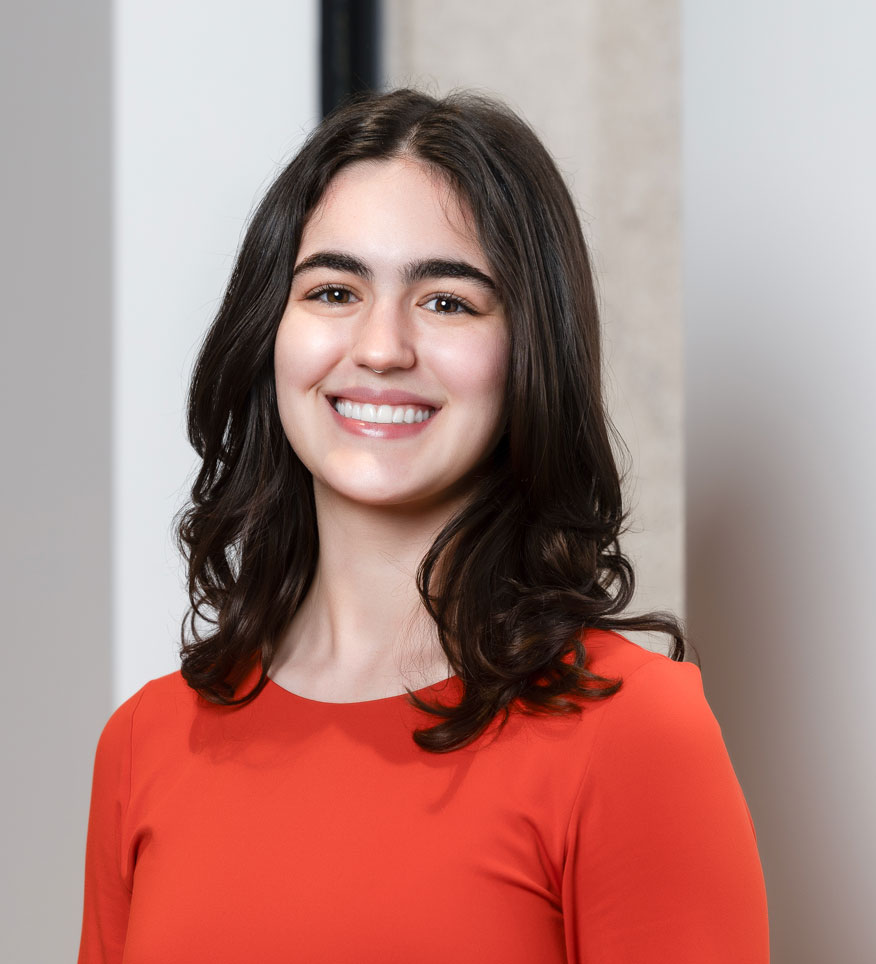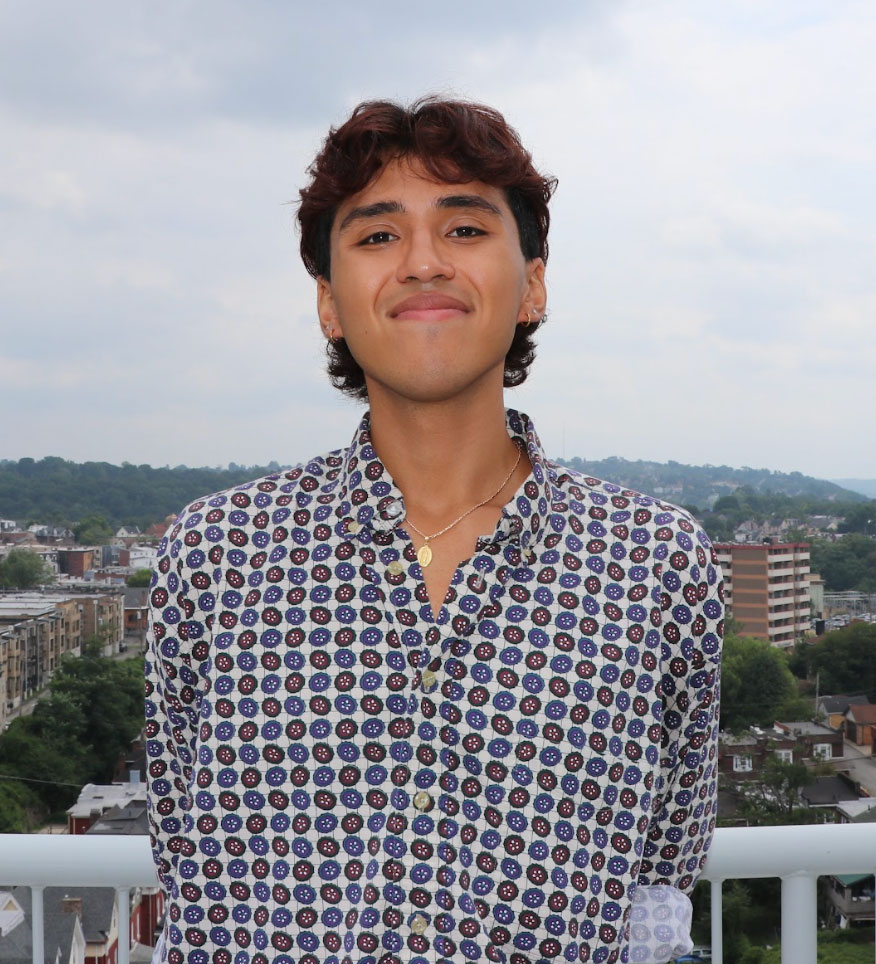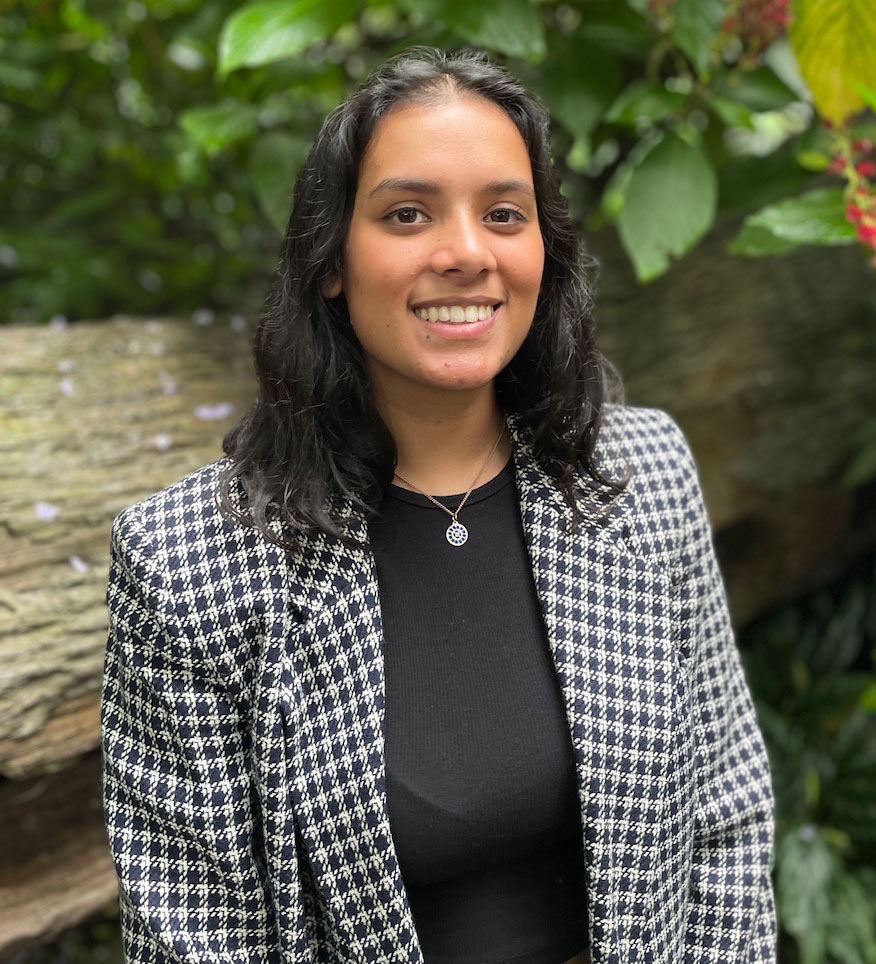No matter their focus areas, young researchers tend to aspire to have their efforts noticed. For three Case Western Reserve University students receiving the 2024 Barry Goldwater Scholarship, the prestigious award serves as all the validation they need.
Among the 437 honorees this year, CWRU students Charlotte Bimson, Saul Castillo and Soumyaa Das were selected from a pool of more than 5,000 applicants from 446 institutions.
Named in honor of Sen. Barry Goldwater, who served in the Senate for 30 years, the award recognizes rising third- and fourth-year students across the country who are on paths to research success in the fields of mathematics, natural sciences or engineering.
Bimson, Castillo and Das will each receive a scholarship valued at a maximum of $7,500 to be used toward tuition, fees, books, and room and board. The award requires institutional endorsement, and the university has a specific application process to be considered. View the details—and learn more about our honorees this year.
Charlotte Bimson

Year: Rising fourth-year
Major: Engineering physics/Master of Science in Physics, entrepreneurship track
After intensely studying physics for four years at a technical high school, Charlotte Bimson knew she enjoyed learning about the subject. But when it came time to pick a specific area to research at Case Western Reserve, she struggled to find the right topic and lab.
Ultimately, she landed in a biomedical engineering lab working on translational research for cancer diagnostics. And as luck would have it, she loved it immediately. Her research efforts inspired her to apply for the university’s master’s program in entrepreneurial physics—a subject Bimson didn’t even know existed before enrolling.
Captivated by the spirit of innovation and commercialization in her field, Bimson pursued new opportunities and completed a medical physics internship with the American Association of Physicists in Medicine. Through this experience, she explored the long-term impacts of different radiation treatment margins for breast primary brain cancer. The preliminary results have pointed toward good outcomes in patients who were treated with no margin.
While that experience wasn’t in a traditional lab setting, Bimson found it to be a particularly valuable experience—and even chose to write about it in her Goldwater Scholarship research paper.
“I hold it pretty close to my heart, because I think especially as a physics major, a lot of my strengths are associated with data analysis and being able to do the front end and back end of an experiment,” she said.
Bimson now works in Umut Gurkan’s CASE Biomanufacturing and Microfabrication Laboratory, where she investigates paper-based electrophoresis for point-of-care multiple myeloma screening. After completing her bachelor’s and master’s degrees, she plans to work in industry, go to law school, and eventually practice patent law to help researchers translate their work.
Saul Castillo

Year: Rising fourth-year
Major: Systems biology and Statistics
As a first-generation student at Case Western Reserve, Saul Castillo didn’t know where to begin looking for research opportunities. He took to Google for suggestions, and, with support from what is now the Undergraduate Research Office, he began reaching out directly to genetics researchers at the university.
He found a welcoming home in the Cleveland Clinic lab of Ruth Keri, a professor of molecular medicine at the School of Medicine. Keri is dedicated to helping promising young researchers develop, especially those who come from underserved backgrounds.
In Keri’s lab, Castillo’s research focused primarily on how experimentally disrupting the BCL11A transcription factor in triple-negative breast cancer could decrease growth and malignancy of the disease. More recently, his work has transitioned to using computational methods to study the interactions of interlobular breast cancer and other breast tissue to determine the influence it has on growth and its development.
Grateful for the support Keri provided in making him comfortable at CWRU, Castillo now pays that forward as a supplemental instructor for BIOL 214: Genes, Evolution, and Ecology. He’s also part of the mentorship program offered through CWRU’s chapter of oSTEM (Out in Science, Technology, Engineering, and Math).
After graduating next spring, Castillo plans to pursue a PhD in computational biology or a related field. He intends to examine the genetic mechanisms of diseases or delve deeper into a more recent interest: how human evolution led to the development of genetic regulatory mechanisms.
As he prepares for his future, Castillo is grateful the Goldwater Scholarship’s financial support will allow him to spend more time in the lab.
“It was really wild when I got it,” Castillo said of the scholarship. “It really helped solidify to me that I’m doing the right things.”
Soumyaa Das

Year: Rising fourth-year
Major: Neuroscience and philosophy
As a child, Soumyaa Das was on a mission to understand the confusing nature of the world around her, often reading about a variety of topics such as rocks and minerals or impressive feats in the Guinness World Record book. Her interests shifted away from these over time, but she continues to seek out answers—now, about how the brain functions.
“A lot of the behaviors and functions we perform in the world can be melted down to neuronal processes—how we think, how we behave, how we act and other things like that,” Das said.
A rising fourth-year majoring in neuroscience and philosophy, Das works in the Suh lab at Cleveland Clinic focused on better understanding the phenomenon of adult neurogenesis and the implications this process has in conditions such as epilepsy and autism spectrum disorder. Her work primarily centers on addiction and withdrawal, alcoholism in particular.
This research has given Das insights into the molecular side of neuroscience, but as an aspiring PhD student, she also wanted to get experience in clinical research. That’s what led her to the Patterson Gentile lab closer to her hometown at the Children’s Hospital of Philadelphia. There, her research focuses on pediatric concussions.
In one project, Das is conducting a chart review of pediatric patients who have experienced concussions and have developed chronic headaches as a result. Building upon that work, she also is involved in a second project examining how concussions impact a child’s visual system.
Das’s experiences in the lab have allowed her to develop skills such as synthesizing different concepts and ideas. But she said her biggest success is embracing what she doesn’t know—something she used to struggle with as a young researcher surrounded by lab members with doctorates.
“Research is a truly welcoming field because it doesn’t invalidate you for not knowing something,” she said. “In fact, it celebrates not knowing something, and especially it celebrates wanting to figure something out.”
This article was originally published June 26, 2024.

